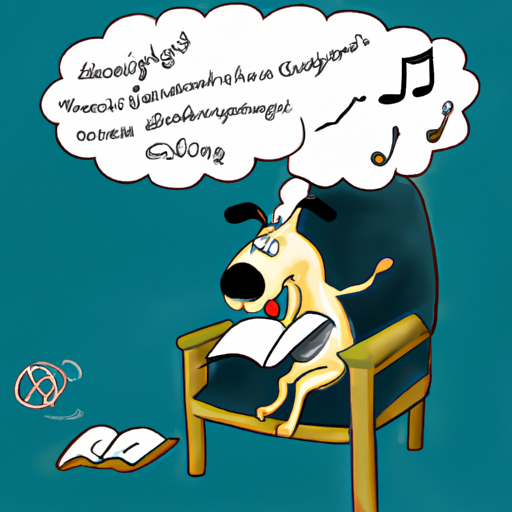Understanding the Basics of Canine Communication
You may find yourself wondering why your beloved furry friend can’t articulate words as humans do. But have you ever thought that maybe they do speak, just not in a language we comprehend? Dogs communicate through a series of physical and vocal cues. While we rely heavily on verbal communication, dogs depend on a combination of sounds, body movements, and even scents.
- Sounds: Barks, whines, growls, and howls are all part of a dog’s sound vocabulary. These sounds can indicate a variety of emotions or intentions, from fear to playfulness.
- Body Movements: Tail wagging, ear positioning, and body postures can tell a lot about what a dog is thinking or feeling.
- Scents: Dogs have a powerful sense of smell and they use it to exchange information with other dogs.
Biological Limitations to Verbal Speech
Biologically speaking, dogs aren’t built to speak as humans do. Their vocal cords, tongue, and mouth shape don’t allow them to produce the range of sounds necessary for human language. They can’t form the precise articulations required for words, which rely on the ability to control the fine movements of the lips, tongue, and larynx.
| Human Speech Organs | Dog Equivalent |
|---|---|
| Lips | Muzzle |
| Tongue | Tongue |
| Larynx | Larynx |
Can Dogs Understand Human Language?
While dogs can’t speak human language, they can certainly understand some of it. Dogs trained with verbal commands can learn to associate certain sounds with specific actions or objects. They can also pick up on emotional cues in a person’s voice.
Teaching Your Dog to Communicate Better
Even though your dog can’t converse with you in your language, you can still improve communication with your pet. Here are a few tips to make this possible:
- Use clear, consistent commands.
- Reward your dog for successful communication.
- Pay attention to your dog’s non-verbal cues.
- Use gestures along with verbal commands.
The Future of Canine Communication
While our dogs may not be able to speak as we do, advancements in technology are giving us new ways to understand them. Innovative devices like dog translation collars or apps may soon allow us to “speak” with our dogs in ways we’ve never imagined.
Frequently Asked Questions
Q: Can dogs understand human words?
A: Yes, to some extent. Dogs can learn to associate specific sounds (words) with actions or objects.
Q: Why does my dog bark at me?
A: Dogs bark for various reasons such as seeking attention, expressing excitement, or signaling distress.
Q: Can I teach my dog to understand more words?
A: Absolutely! Consistent training with rewards can help your dog associate more sounds with specific actions or objects.
Remember, even though your dog can’t speak your language, that doesn’t mean they don’t understand you or have nothing to say. By being a responsive caregiver, you can learn to understand your dog’s unique language and form an even deeper bond with your furry friend.



